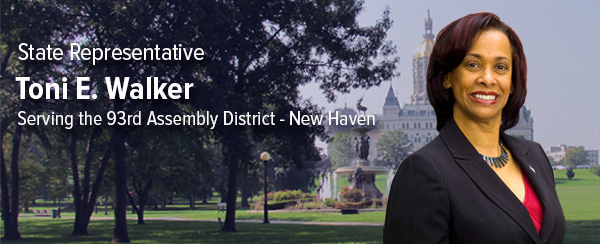
February 21, 2012
SUBSIDIZED HOUSING: SHOULD HOMELESS CHILDREN
GET TO JUMP TO THE FRONT OF THE WAIT LIST?
By Jacqueline Rabe Thomas, CT Mirror
One way of looking at the business of state government -- especially human services -- is through numbers.
The state's population of about 3.5 million breaks down into about 1.3 million households, according to the U.S. Census.
Of those, more than 190,000 households last year claimed the federal EITC -- earned income tax credit -- a good indicator of families living on the financial edge.
But Friday afternoon, in a room in the state Legislative Office Building, a single, small number seemed to stand out and tell its own story.
The number was 83, and it referred to the number of children who are in state custody for only one reason: their families have no home.
DCF Commissioner Joette Katz: 'to me that translates to we have children for no other reason than poverty.'
Of the children who "could go home if there was a home to go to," the Department of Children and Families said, more than half were living with strangers as foster children. Others were living in large group homes or in shelters. And 24 of those 83 were living with other family members.
"So to me that translates to: we have children for no other reason than poverty," DCF Commissioner Joette Katztold lawmakers on the Appropriations Committee Friday.
State law forbids DCF from removing children from their homes because of poverty. But the agency has no alternative because there is limited space in subsidized housing.
The agency reports that each month it refers 100 families with children to the state's subsidized housing program. About 800 families referred by DCF are on the waiting list for the Connections program.
Sen. Toni N. Harp, D-New Haven, and co-chairwoman of the Appropriations Committee, wants to allow homeless families with children to cut to the front of the long line of people vying for public housing.
"Since resources are limited, we've got to make decisions about who gets it first. I think the people you serve should get it first," Harp told Katz. "This is an awful reason to lose your children."
Gov. Dannel P. Malloy's proposed budget preserves the $6.3 million this housing program received last year. He also recommends adding 150 new subsidized housing units to be offered to the elderly, disabled and those families at-risk of losing their children to DCF.
Without a line-jumping change in policy or huge influx in funding, a backlog of children deemed eligible to go home will inevitably remain in DCF custody.
Evelyn Torres: 'My daughter was in care of DCF because I was homeless.'
Evelyn Torres was one of the lucky parents that landed an apartment through DCF.
"My daughter was in care of DCF because I was homeless. After this program we reunified again," the mother of four from Waterbury told the Appropriations Committee. "Without support[ive] housing, I don't know where I would have gone."
But David Fink, with the Partnership for Strong Communities, said creating a line-jumping policy would not solve the underlying problem.
"You can't have so many low-income families and so little affordable housing units," he said. "It's a really bad choice to have to make who gets it and who doesn't"
Fink, who advocates for the expansion of affordable housing, said it takes years to land a state subsidized housing unit for homeless people and those on the verge of becoming homeless. When the wait list for Middletown's affordable housing units opened recently, 50,000 people applied for 1,000 seats.
Management consternation
When parents enter DCF's housing program to avoid having their child taken away, their dealings with the agency doesn't end there.
Members of the Appropriations Committee were told the agency follows up to make sure these children are safe. Additionally, the program aims to get parents out of poverty so their children are not at risk of being removed for other poverty-related incidents, such as lack of food or health care.
So when Malloy proposed having the state's economic development agency run the program, legislators were stunned.
"That has really caused some uncomfortableness among us," said Rep. Toni E. Walker, D-New Haven, and the other chairwoman of the Appropriations Committtee.
The move could also put the state at risk of not qualifying for federal reimbursements for the Connections housing program, said Ruth White with the National Center for Housing and Child Welfare.
"It will make it difficult if not impossible" to qualify, she said. "Disrupting this risks destroying the very nature of that nationally renown program," she said.
The intent of moving the program to the Department of Economic and Community Development was an effort to move all the state's housing programs under one roof, a spokesman said.
"Consolidating the state's housing fuctions into one centralized office located within DECD will streamline, facilitate and strengthen a coordination of these needs for those who need it most throughout the state," David Bednarz said.